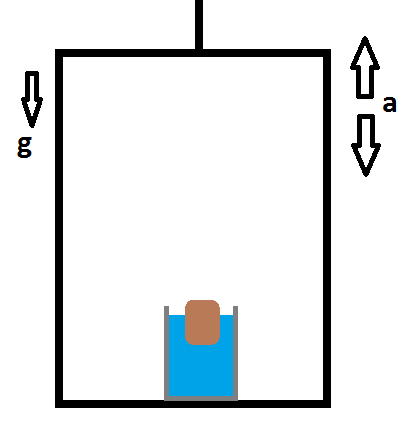Imagine you have an elevator and we place a bucket filled with water in it. On the surface of the water there is a floating cork, which is in some portion inside the water. What would happen to the cork if the elevator moves up or down? Would it submerge more when moving up, or less when moving down? Or nothing will happen to it's position?
 To answer the question we need to consider the Law of Archimedes. If we calculate the total hydrostatic force acting on an immersed body, which is in fact the surface force, we will see that it equals to -G, so it is directed against the gravity force. As a result, its value is equal to the weight of the displaced liquid.
To answer the question we need to consider the Law of Archimedes. If we calculate the total hydrostatic force acting on an immersed body, which is in fact the surface force, we will see that it equals to -G, so it is directed against the gravity force. As a result, its value is equal to the weight of the displaced liquid.Archimedes' principle also states that when a body is immersed in a fluid it experiences an upthrust, or apparent loss of weight, equal to the weight of the fluid displaced by the body. Fluid pressure is increasing with depth, which means that there is a greater pressure pushing up on the body from underneath than there is pushing down on it from on top.
Peter Deak
Reference: A.C.Kermode, Mechanics of Flight, 10th edition, pp.25.


.bmp)
No comments:
Post a Comment